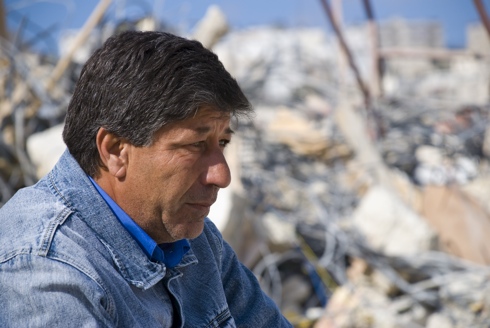How travel teaches us to hate

Anata, West Bank
In my book 30 Reasons to Travel: Photographs and Reflections from Southeast Asia, I offer several non-standard reasons for hitting the road. Here is the most counterintuitive of the bunch: “Hating”.
In a perfect world, of course, there would be no need to hate, because we would all treat one another rightly. Governments wouldn’t slaughter citizens, forty-year-old men wouldn’t sleep with ten-year-old girls, and guys in an Indonesian restaurant wouldn’t laugh after telling you how they had recently beaten a man just because he belonged to a different religion. There would be no Auschwitz, there would be no Killing Fields, and there would be no brothels filled with village girls. There would be no torture wounds, no reality-induced nightmares, no heartbroken refugees living in exile because they have been expelled from their homes.
But our world, as any observant traveler well knows, isn’t perfect. If you’re a reporter like Nicholas Kristof, your travels take you to the extremes of imperfection, such as into the shade of a tree on the Chad-Sudan border, where you encounter a shell-shocked 4-year-old girl carrying her 1-year-old brother, their parents recently slain before their very eyes. Or if, like me, you’ve traveled much in Israel and the Palestinian territories, you’ve seen ample heartache on both sides, including broken individuals like the Palestinian man above, whose home has just been demolished in a practice human rights groups roundly condemn. Or in Nepal (and just about every other place), meander through a back alley or two and you’ll quickly meet people living in impoverished conditions. Perhaps you’ll walk into a home (the size of many suburban bedroom closets) and find a child lying on a mat, his body contorted by severe cerebral palsy. As you look at him, the mother might explain how medical care has always been beyond the family’s reach given their $30/month income.
Travel frequently introduces us to beauty, but it shows us other things too. As we lay eyes on situations and listen to voices in places we previously knew little about, our love for the world and its people will deepen. The flipside of this, however, is that our hatred—of attitudes, ideologies, and policies that take advantage of others and harm—will also deepen. For if we love with all our might, we will also be bound to hate some things with all our might.
Or so it has been for me in my own journeys. And I’m thankful for this, for constructive hatred is an attribute, I think, even if little spoken of.

November 29th, 2009 at 10:04 am
[…] What has often been a companion of my culture shock is something akin to hatred, an ugly emotion that has the ability to take hold of my soul even against protest. I’ve come home angry at many things, and though it’s not the way I actively choose to be, Joel Carrilet gives me a little comfort in knowing it’s not just a massive character flaw. It happens with due cause. Travel frequently introduces us to beauty, but it shows us other things too. As we lay eyes on situa… […]
November 30th, 2009 at 2:41 am
Compelling post… challenging topic.
In my own travels, witnessing (or actually, personally experiencing) extreme poverty and hunger at first made me both deeply thankful for warm food and shelter, and also hateful of policies that prevent/discourage them. It took a while for the hate to dissipate, and a generalized gratitude to set in.
Thank you for writing this. It’s a trip down memory lane that’s quite uncomfortable, but maybe that’s a good thing.